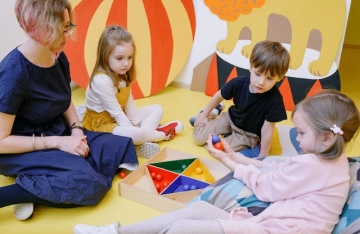Boarding schools have a mixed reputation with parents and students. You might think they provide a very good education for kids. The reality is that boarding schools have a number of problems that can affect your children while they are attending. You should fully understand some of the disadvantages of boarding schools of young kids.

No Contact with Family
One of the main disadvantages is that your child will have limited access to the family. You might see a child only once a month. Some boarding schools limit phone calls to family during the school year. This means you cannot celebrate important milestones and achievements with the young child. It also means parents might not be able to provide the support and advice necessary when a child becomes confused or frustrated. The lack of regular contact with family members is one of the largest drawbacks of boarding schools.
Restricted Academic Curriculum
The academic curriculum of a boarding school is often more restrictive than other types of schools for young children. Your child might have to choose from limited academic electives that are not necessarily interesting or relevant. Teachers at the school might not be able to adapt lessons and teaching styles to meet the needs of your child.
This can make it difficult for a student to understand complex concepts and to develop cognitive thinking skills. Unlike other types of schools, boarding schools often do not make special accommodations for children who want to follow particular subjects or who have specific learning needs.
Limited Social Interactions
A boarding school is a closed environment. Your children are basically locked into classes with the same people for the duration of the year. This limits the amount of social interactions possible for young kids. Your children will likely fall into one of the familiar social patterns that already exist at the school. New students are not introduced regularly.
Children do not have an opportunity to go out into the surrounding neighborhood and make new friends in the way they would while living at home. This is a very important issue to consider since the social skills your kids develop while in school will last a lifetime.
Feelings of Isolation and Loneliness
Young kids might not be ready for life outside of the home with complete strangers. You children will be used to having parents, friends and neighbors around at all times. Moving to a boarding school can lead to immediate feelings of isolation and loneliness. This can cause anxiety and depression that affects academic performance. These feelings could even cause your child to develop bad behaviors in order to compensate for the emotional distress.
Potential Exposure to Bullying
You will not be around to protect or guide your children while they are at boarding school. Boarding schools have internal and private traditions passed down between students from one year to the next. Your kids could be exposed to bullying at the school. Bullying can occur because your child is new, because your child is perceived to be different or because it is a part of the culture of the institution. Unfortunately, bullying at boarding schools often goes unreported and unnoticed. It might even be accepted by the staff.
Cost
One final disadvantage of boarding schools is cost. You are not just paying for the education that your child receives. You are also paying for room and board. Room and board can easily double the cost of tuition. Additionally, some boarding schools have excessive fees for supplies, clothes and services that every child needs while attending. This can make a boarding school far more expensive than most other educational options available today for young kids.
Jessie Teh is an education writer focusing on topics of boarding schools for young students. To see an example of the finest boarding school, she recommends visiting www.powiis.edu.my.




